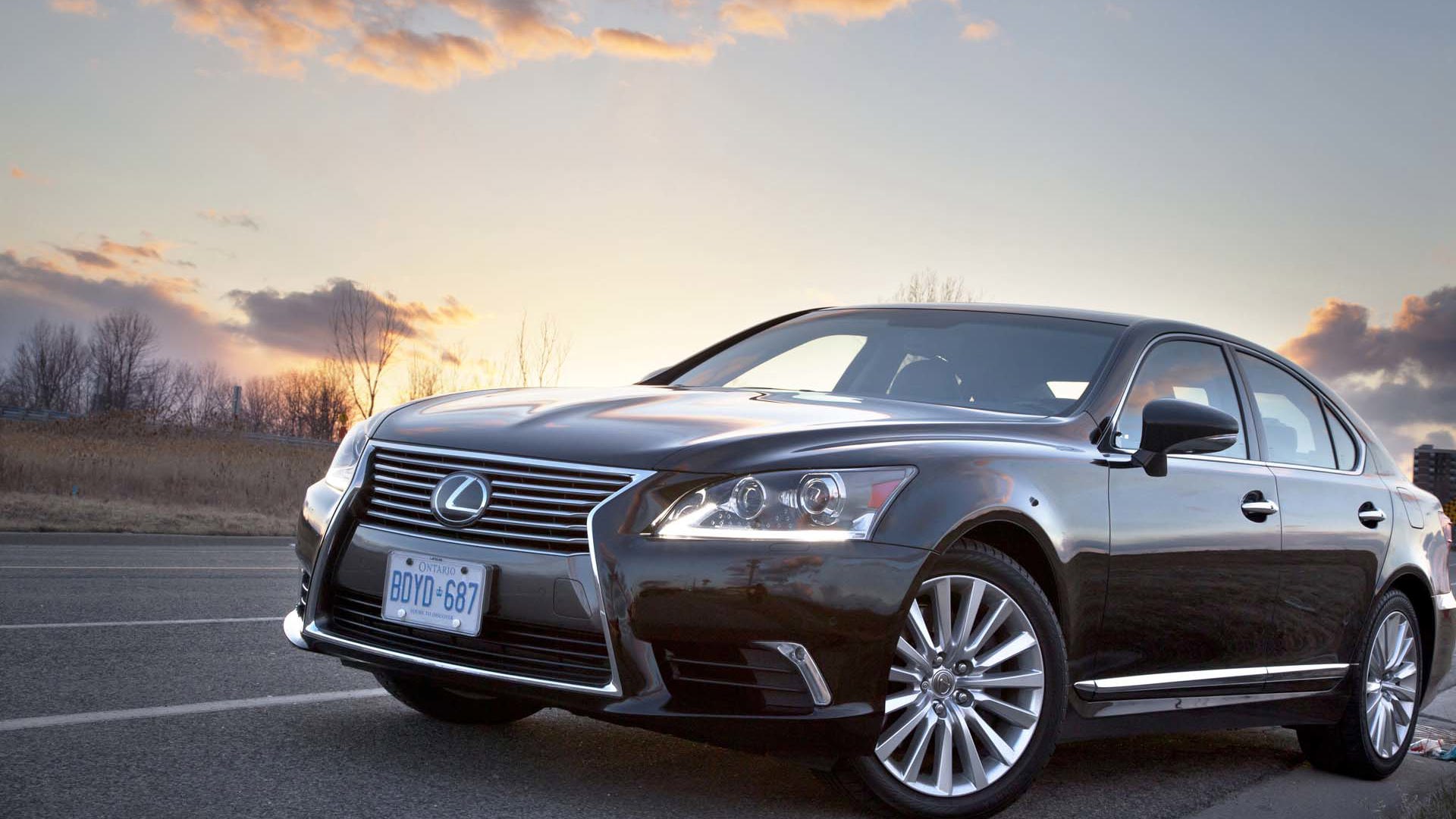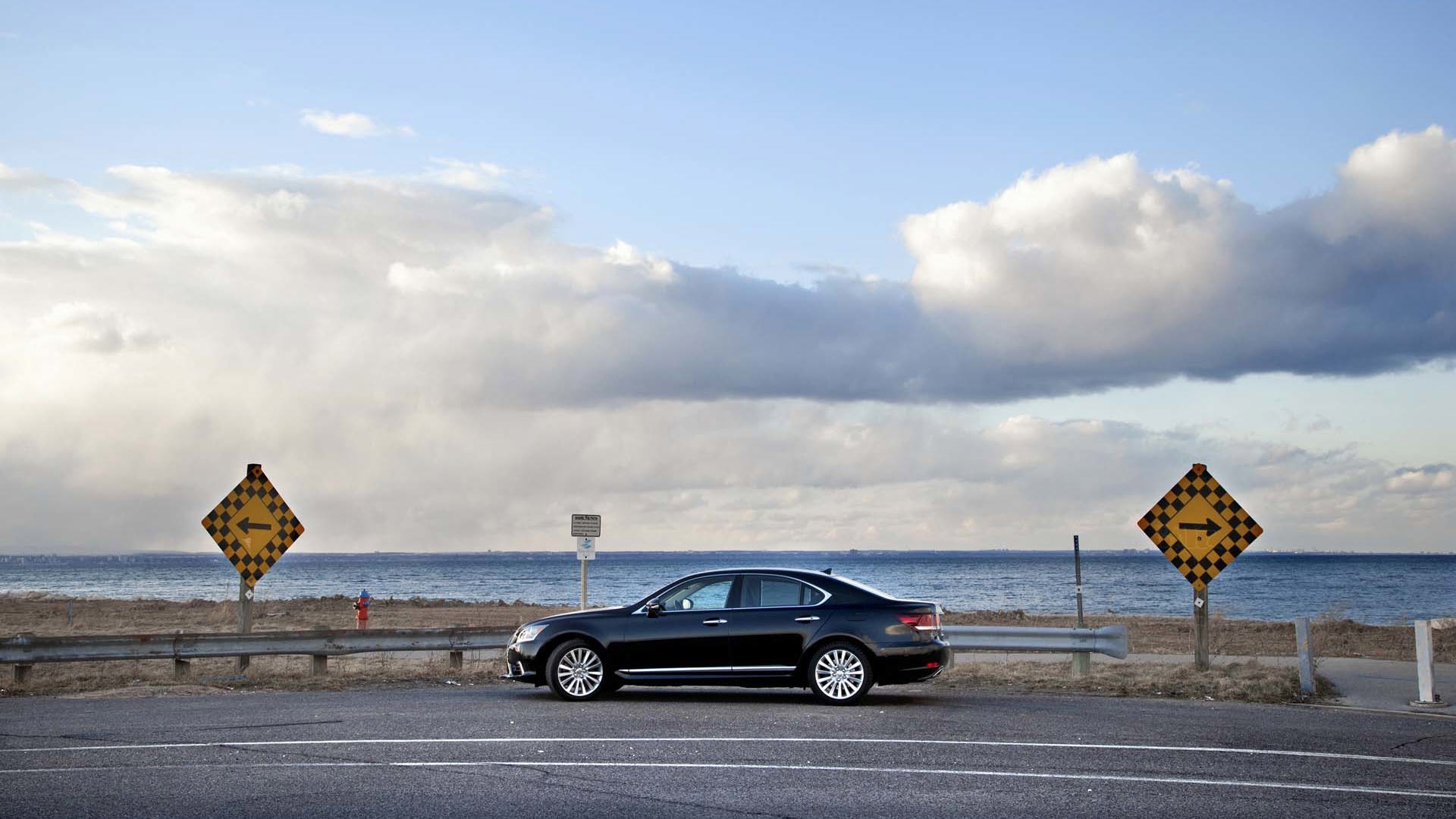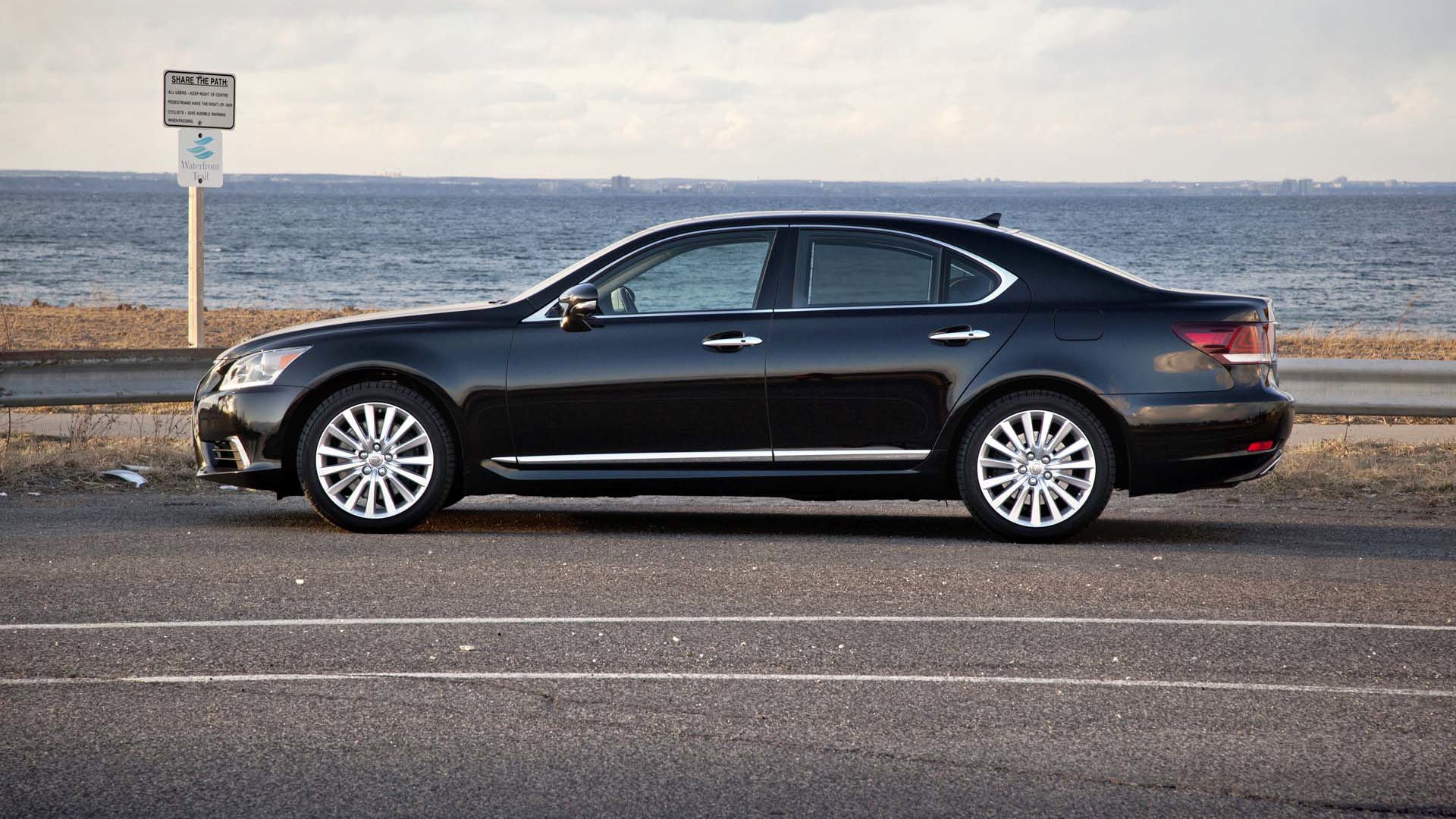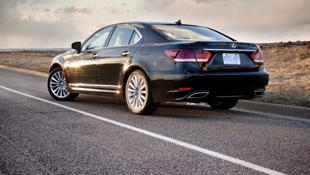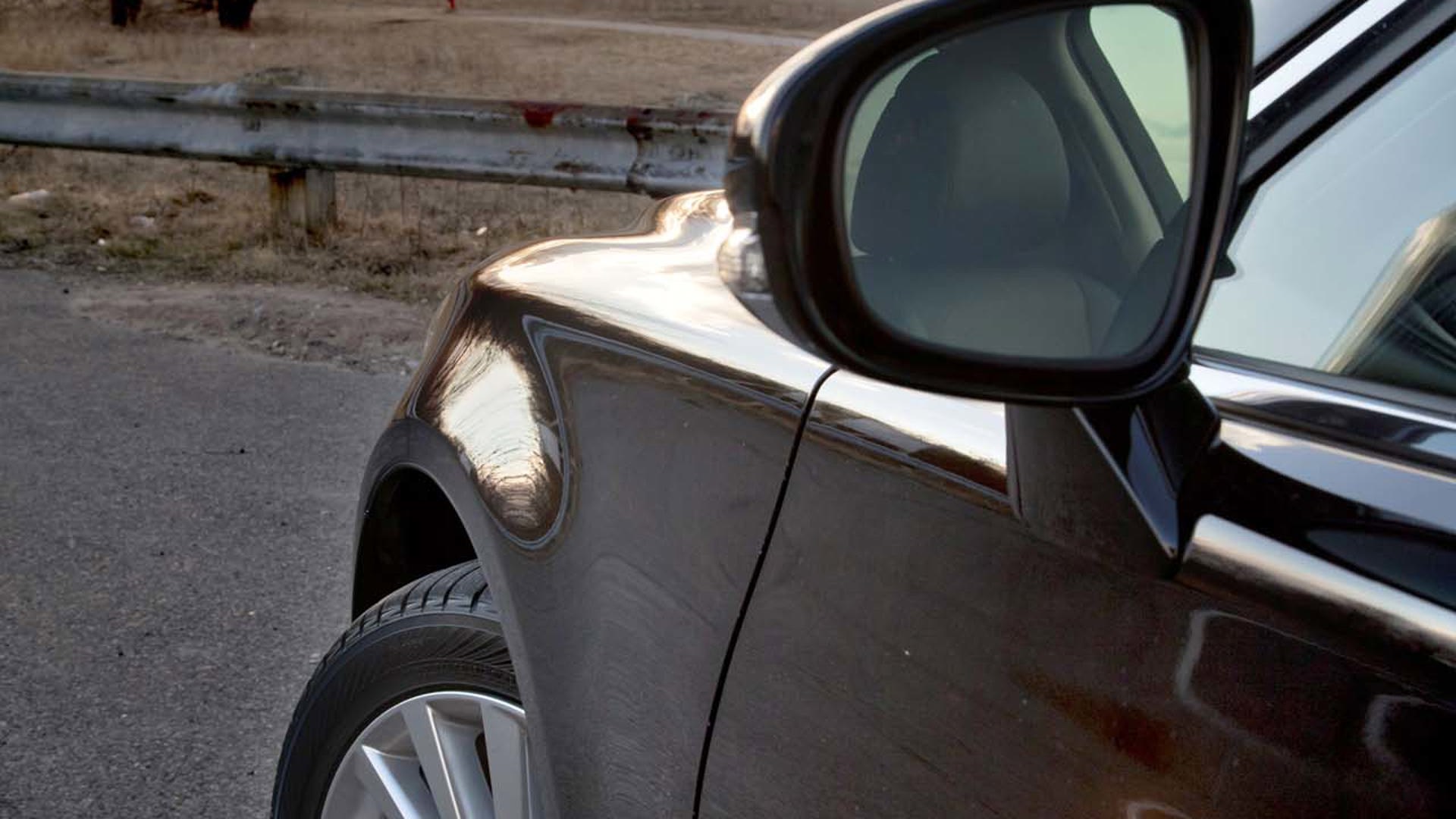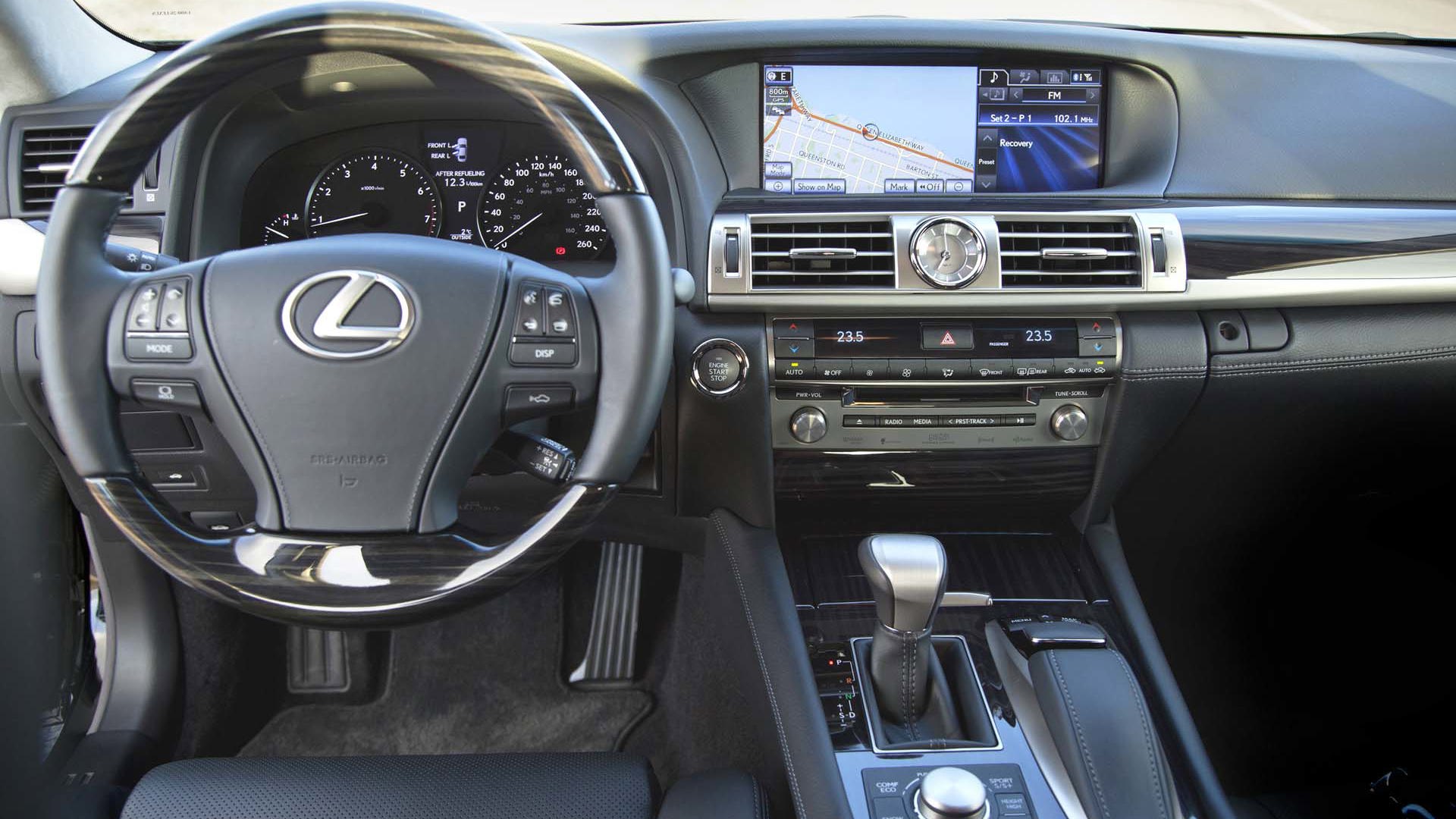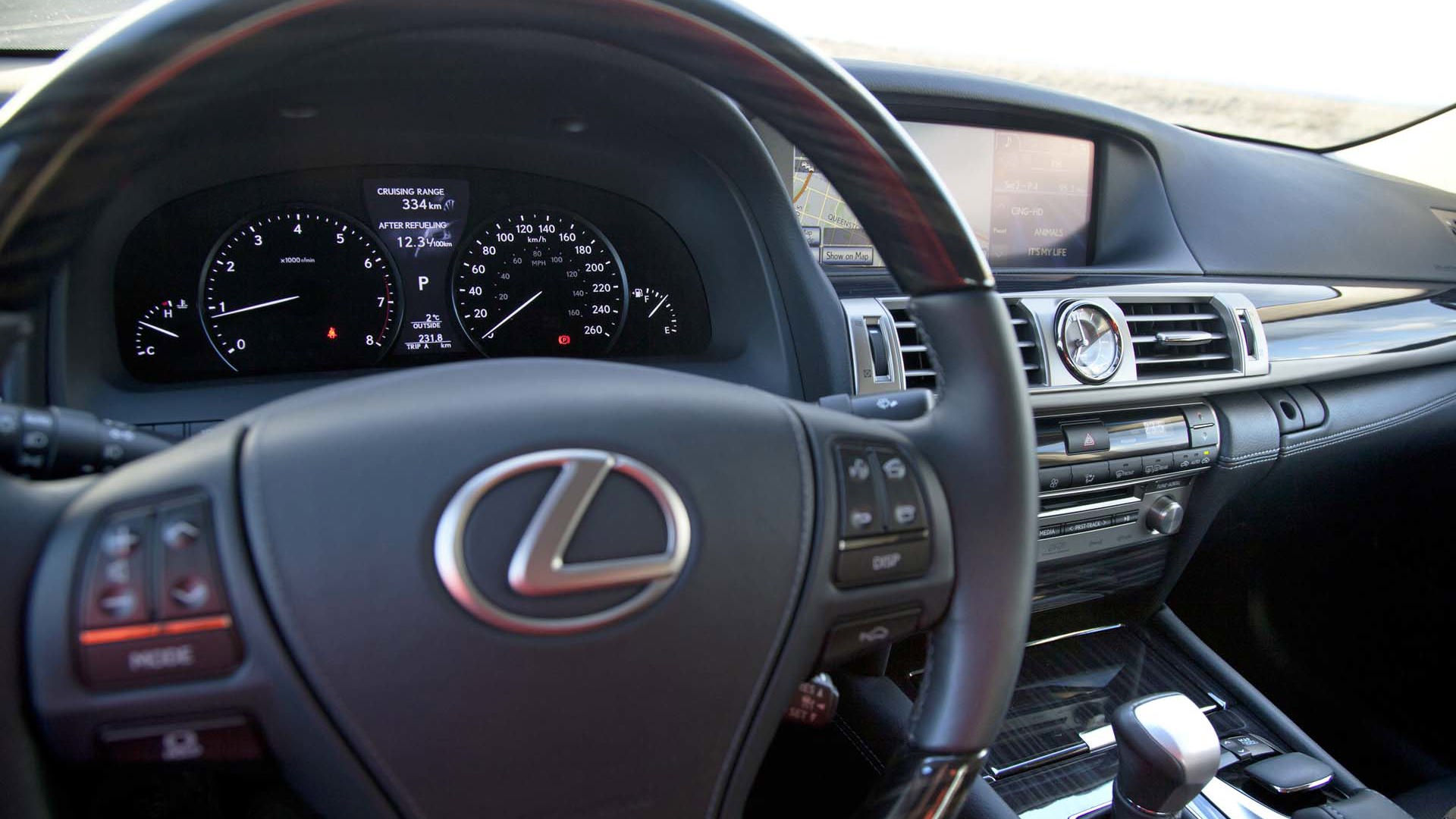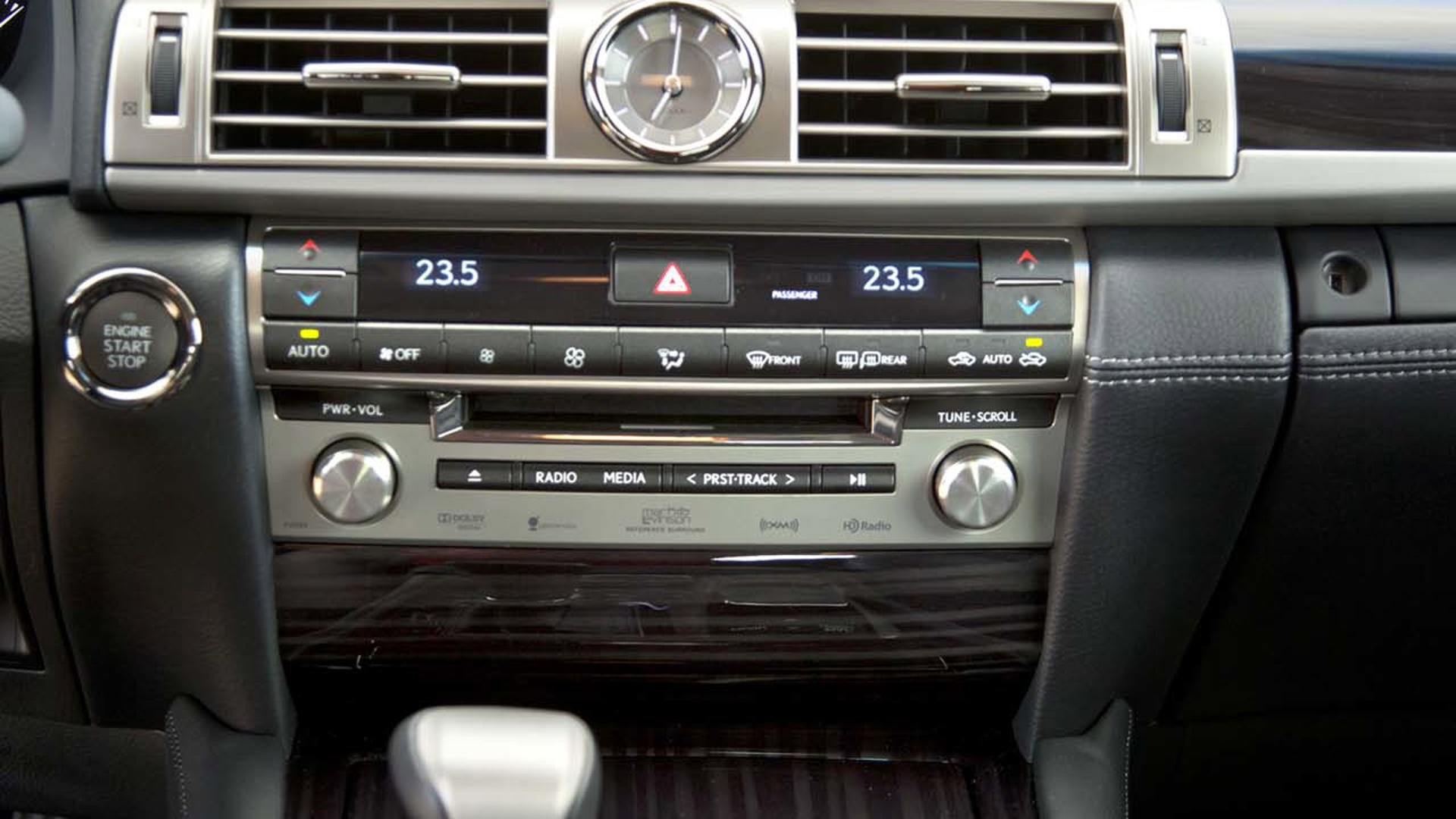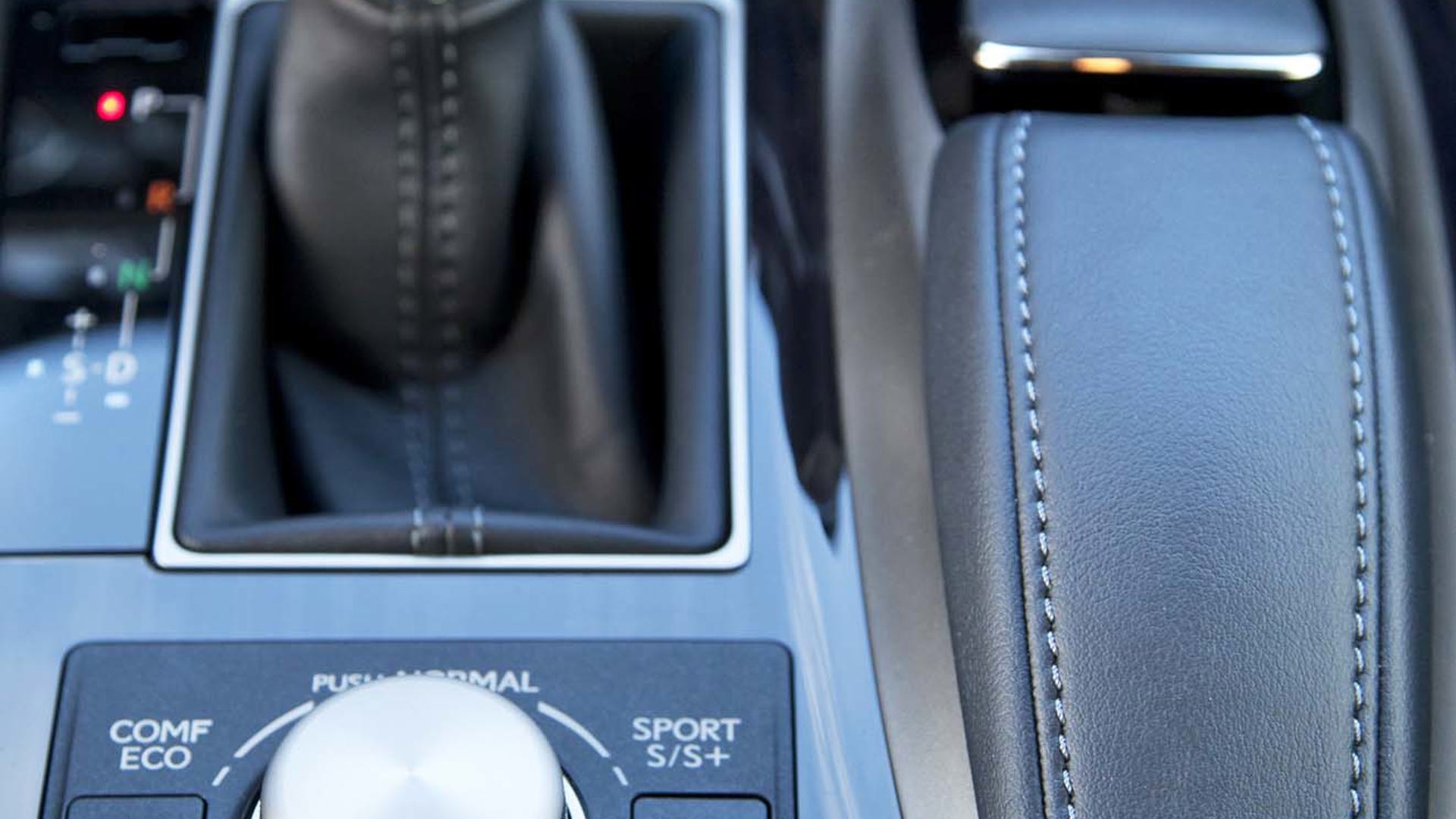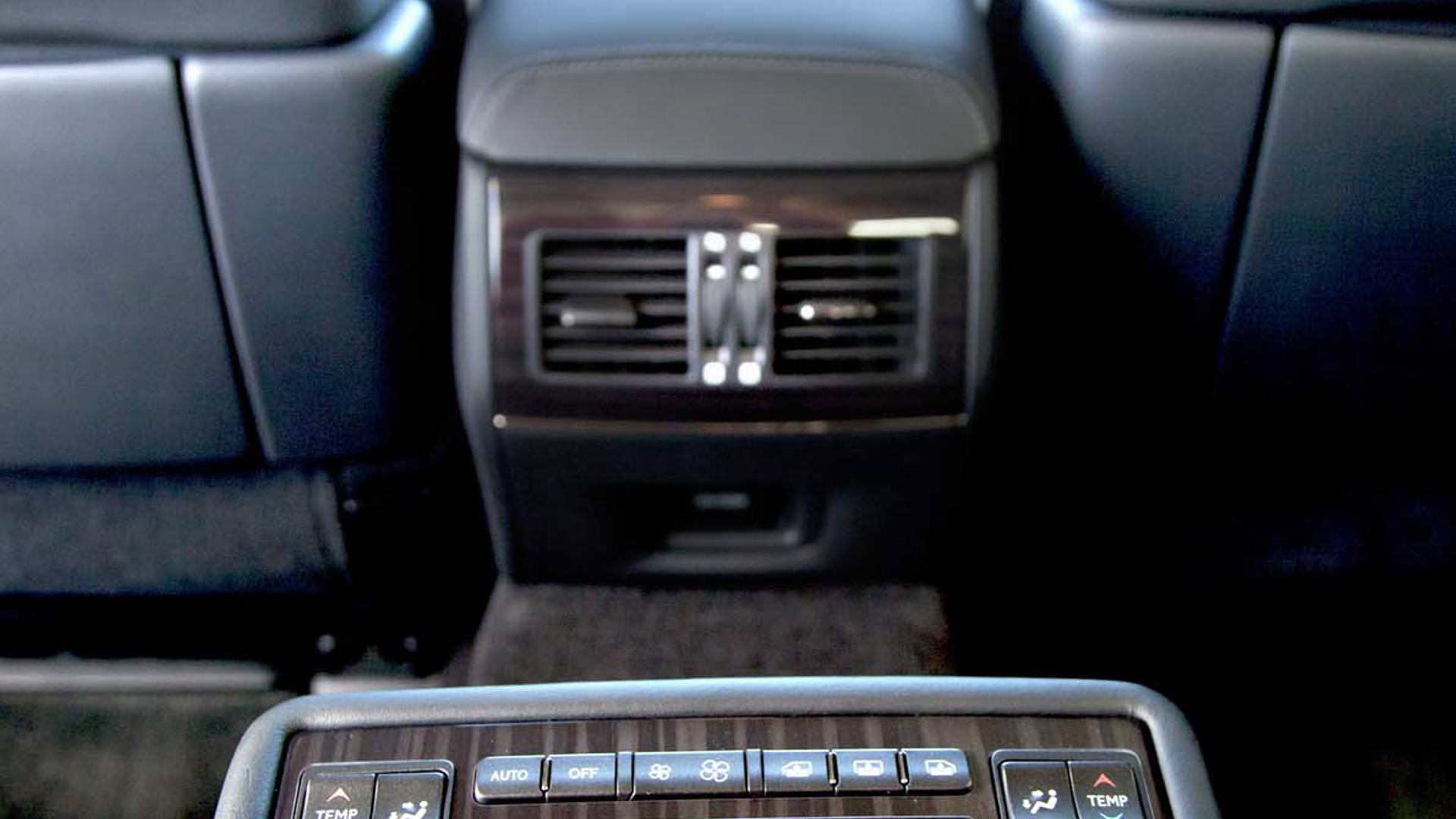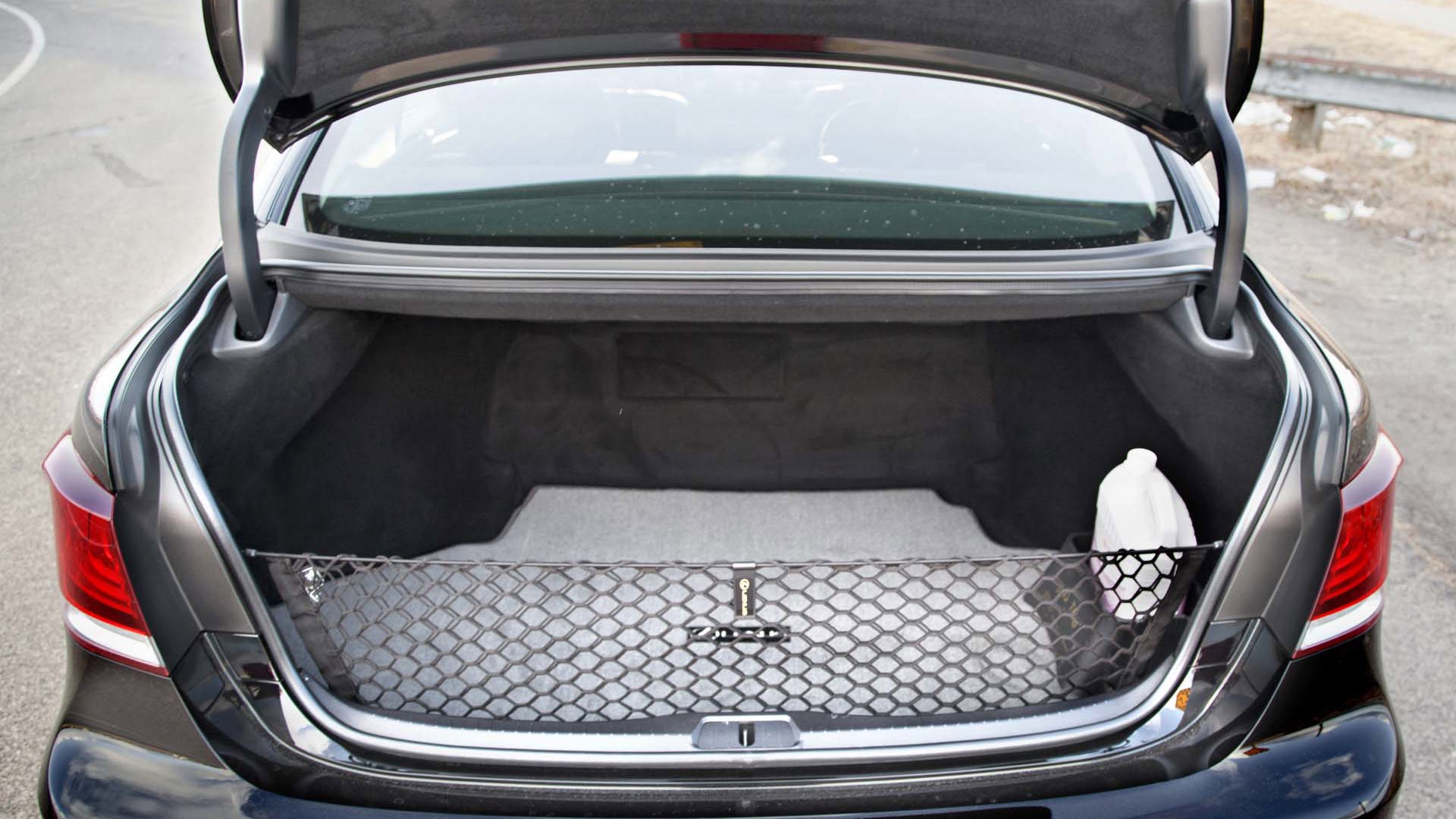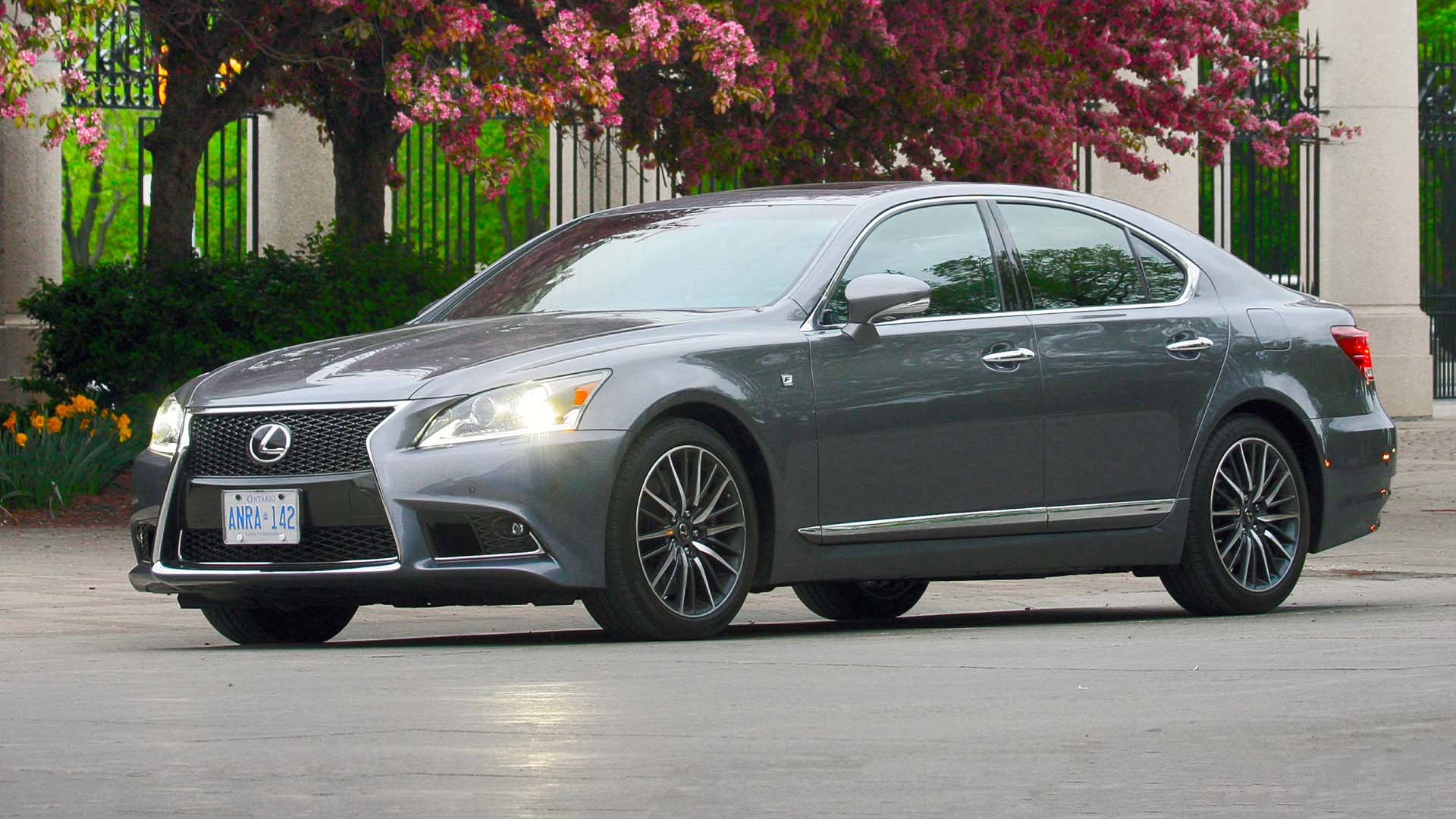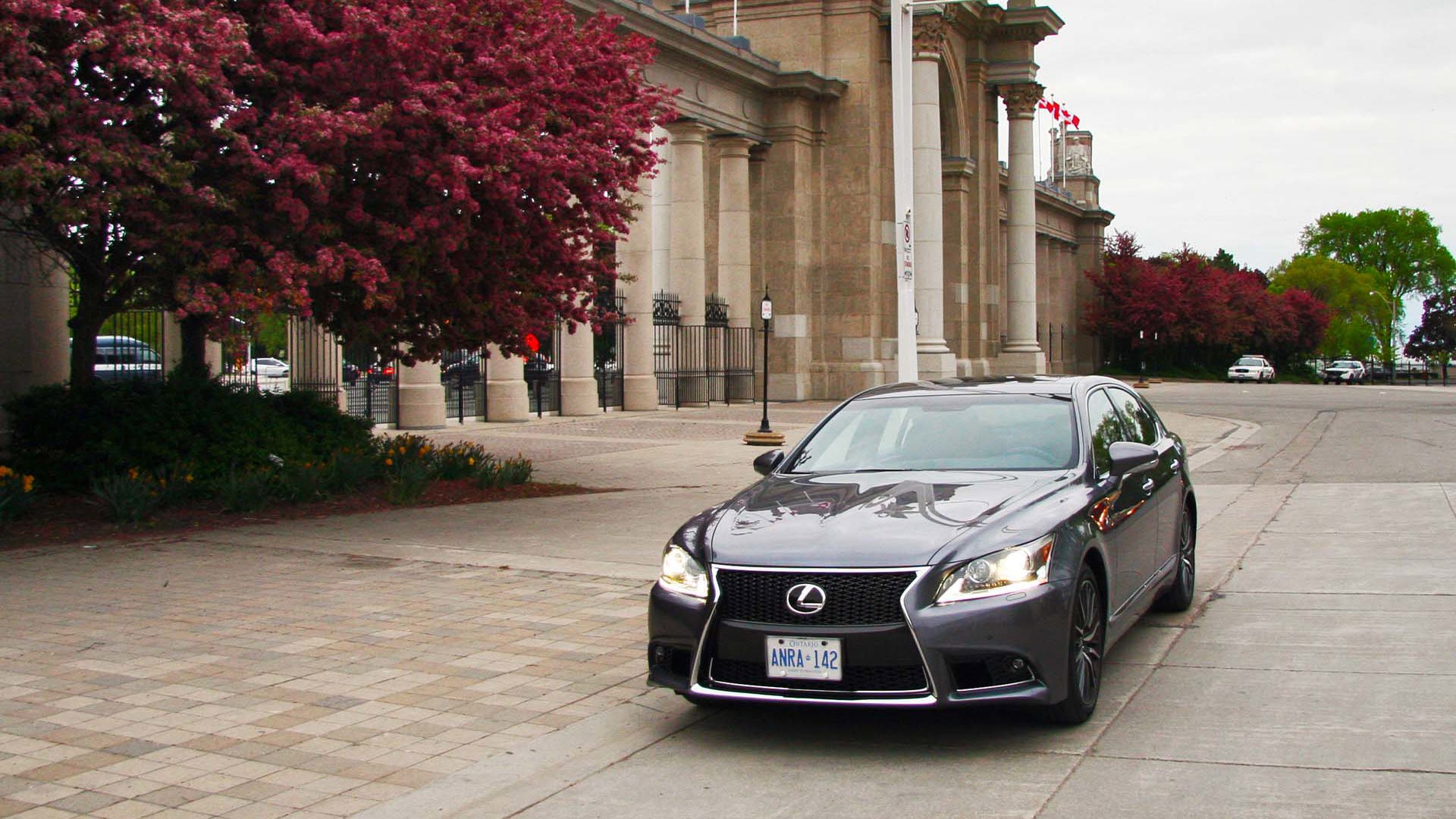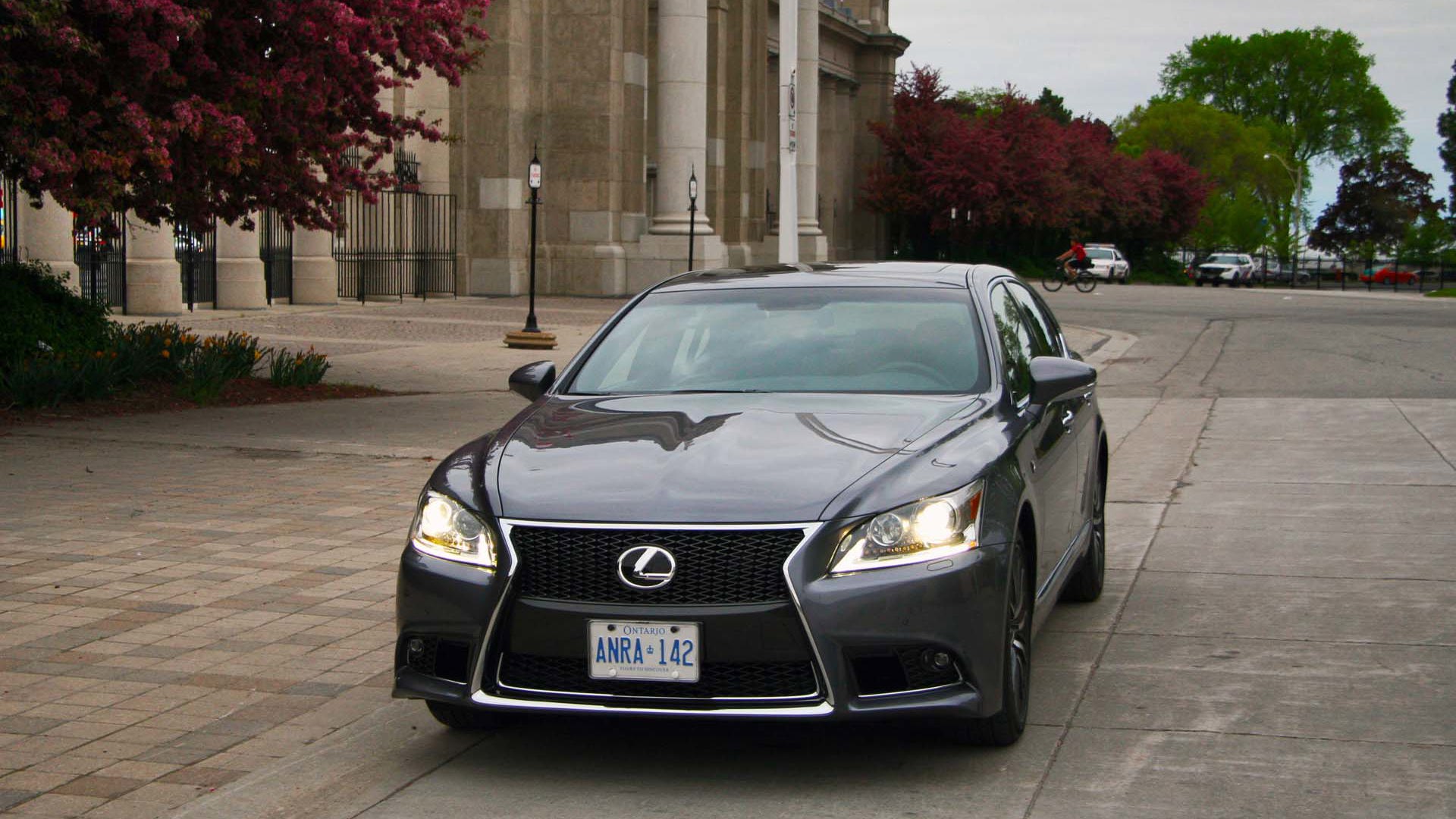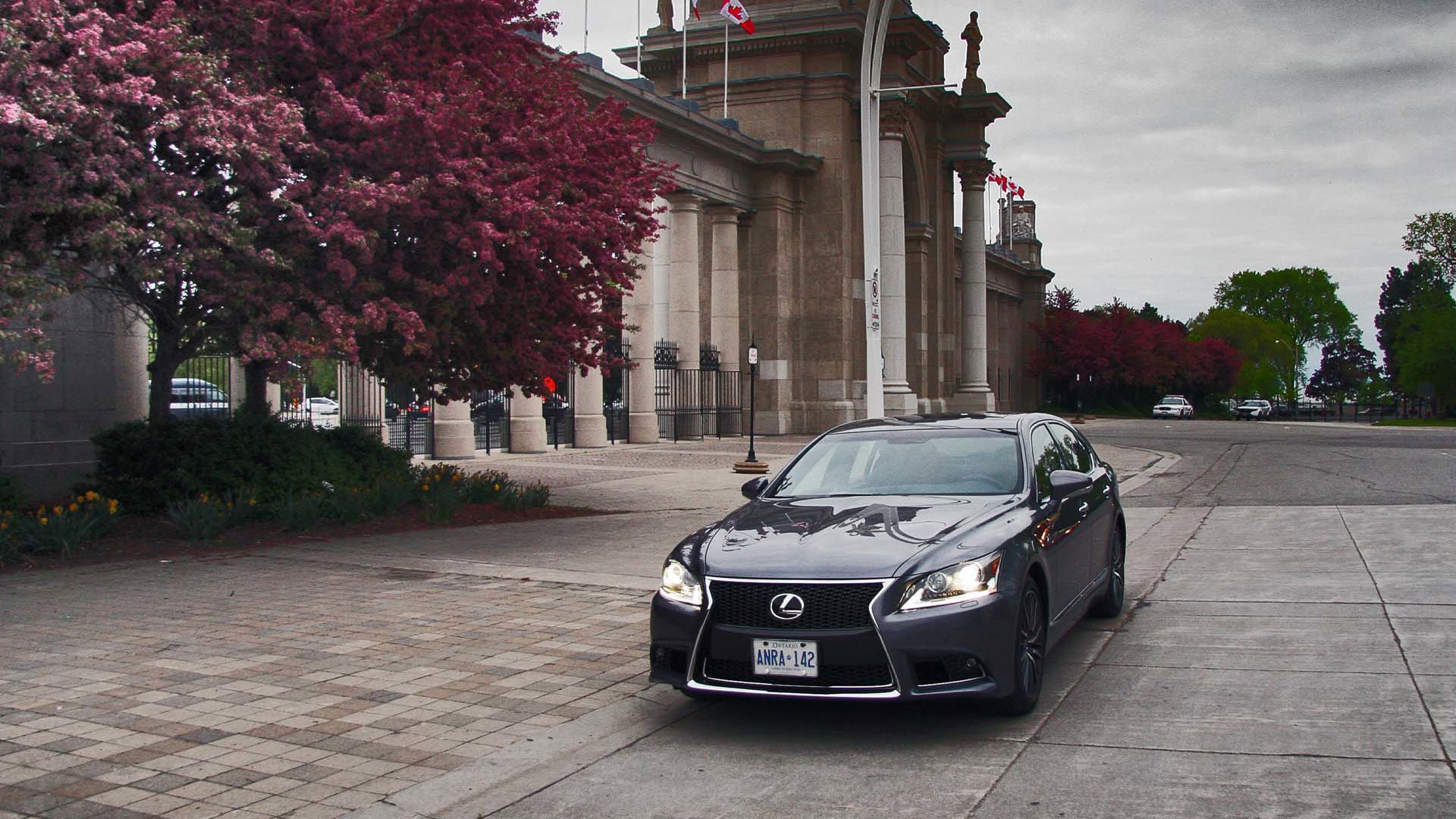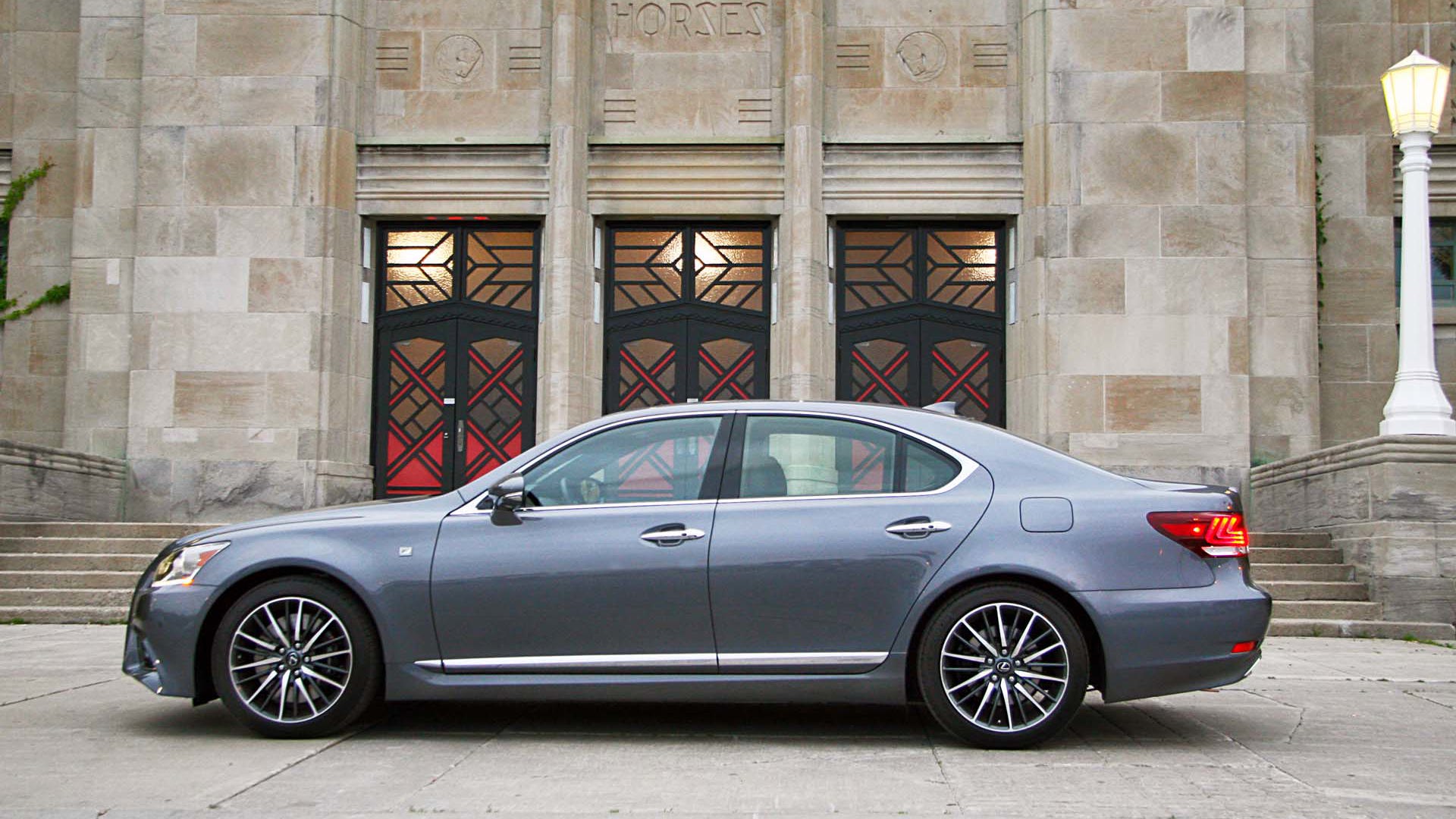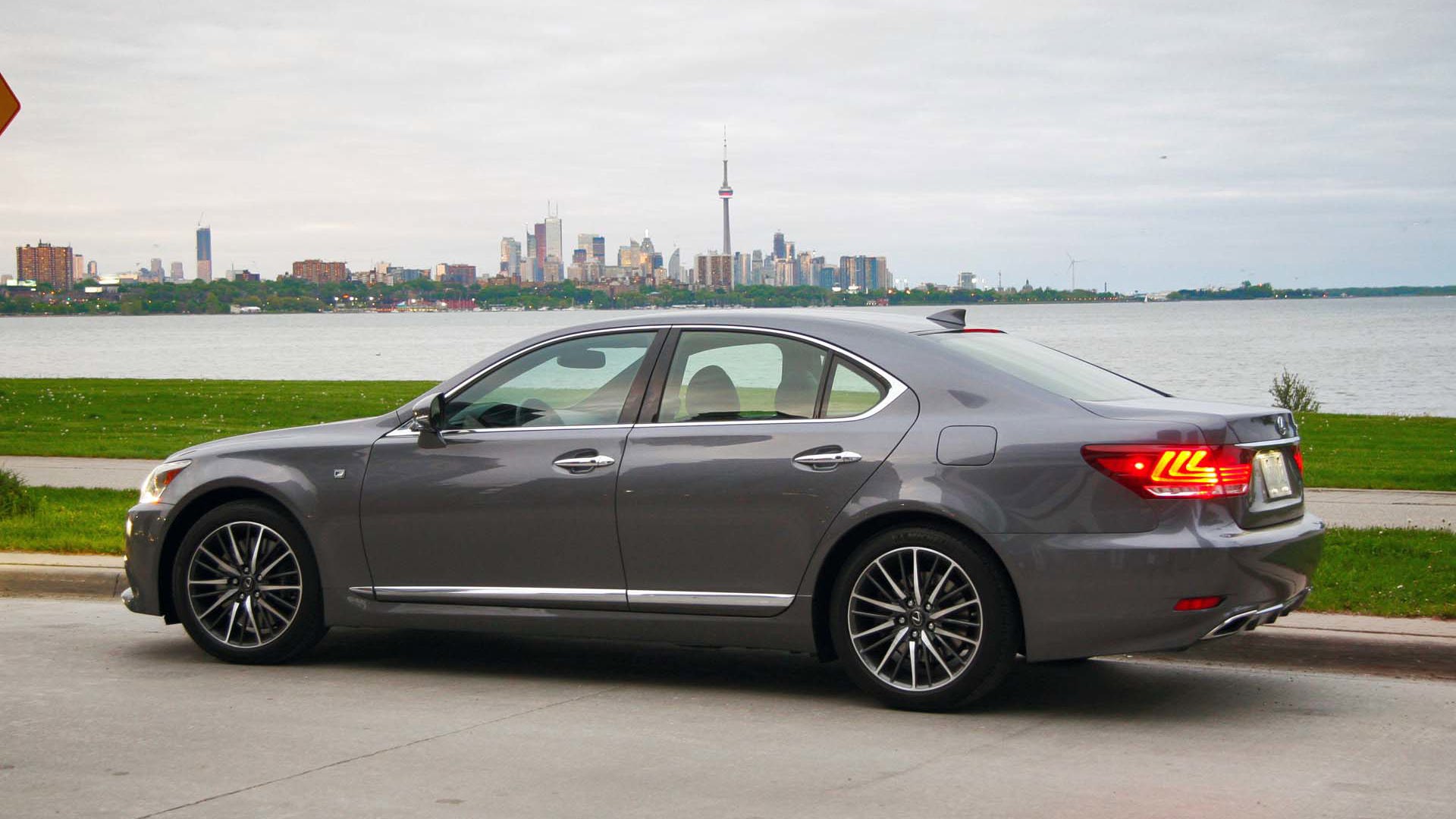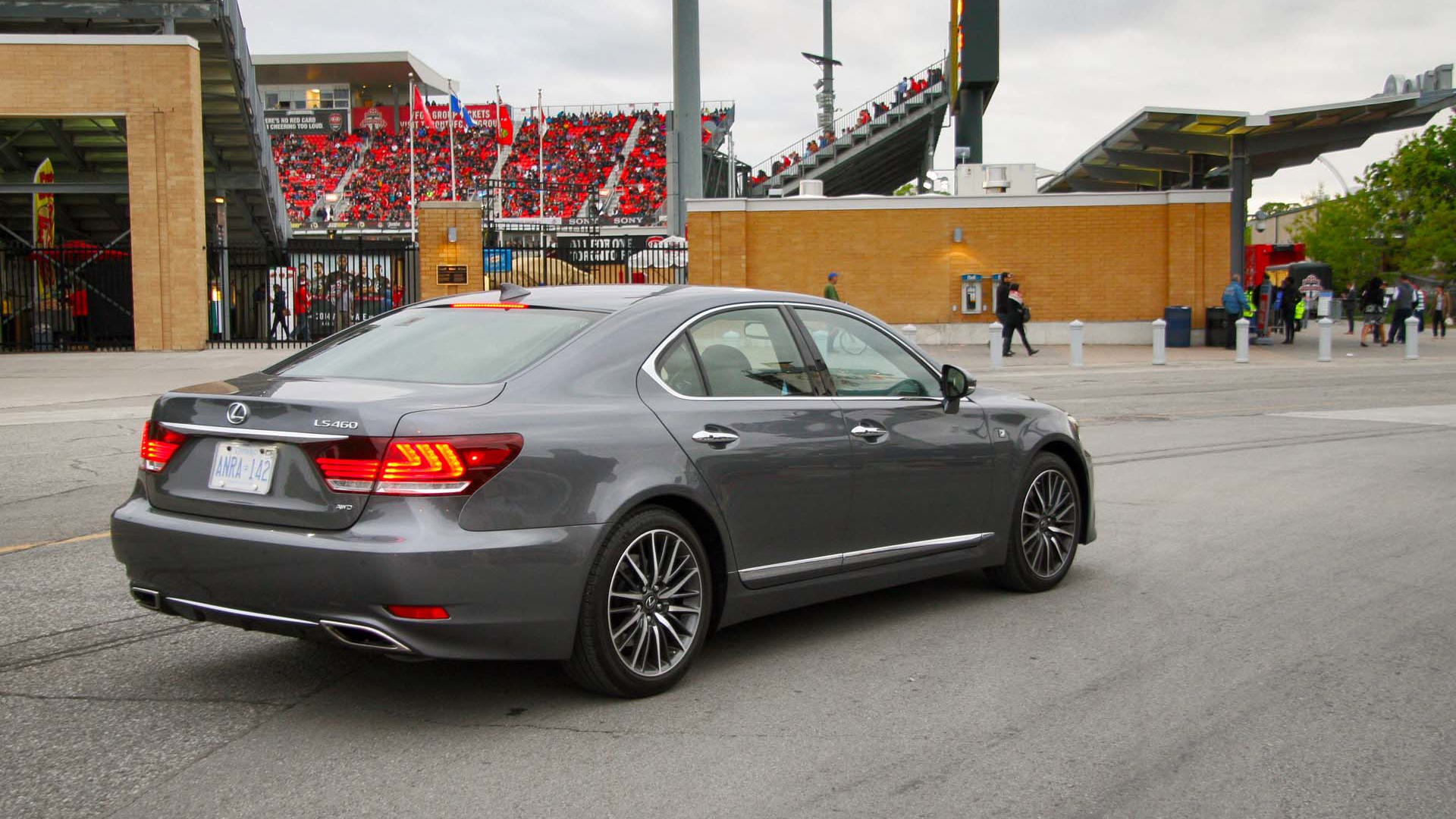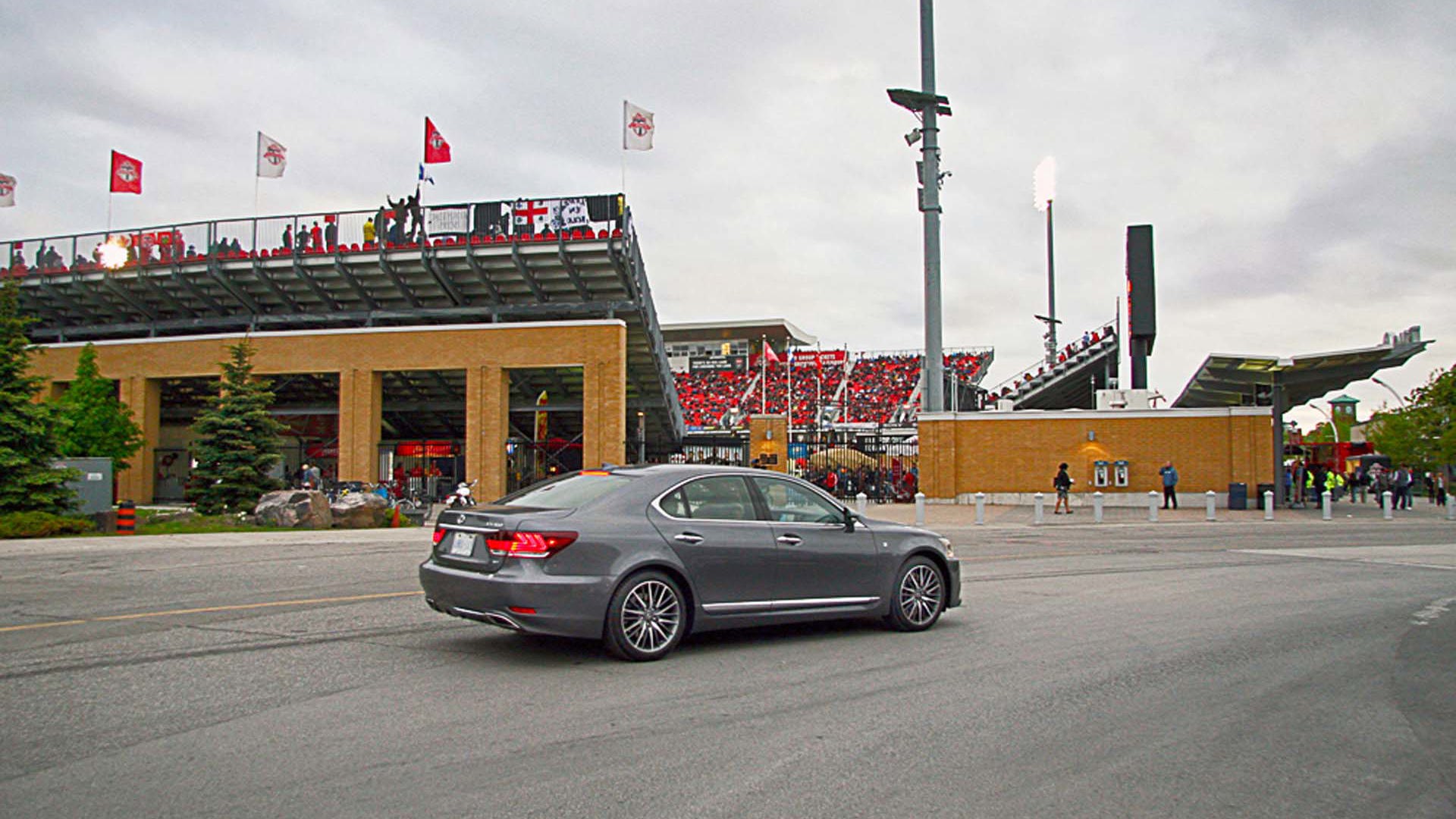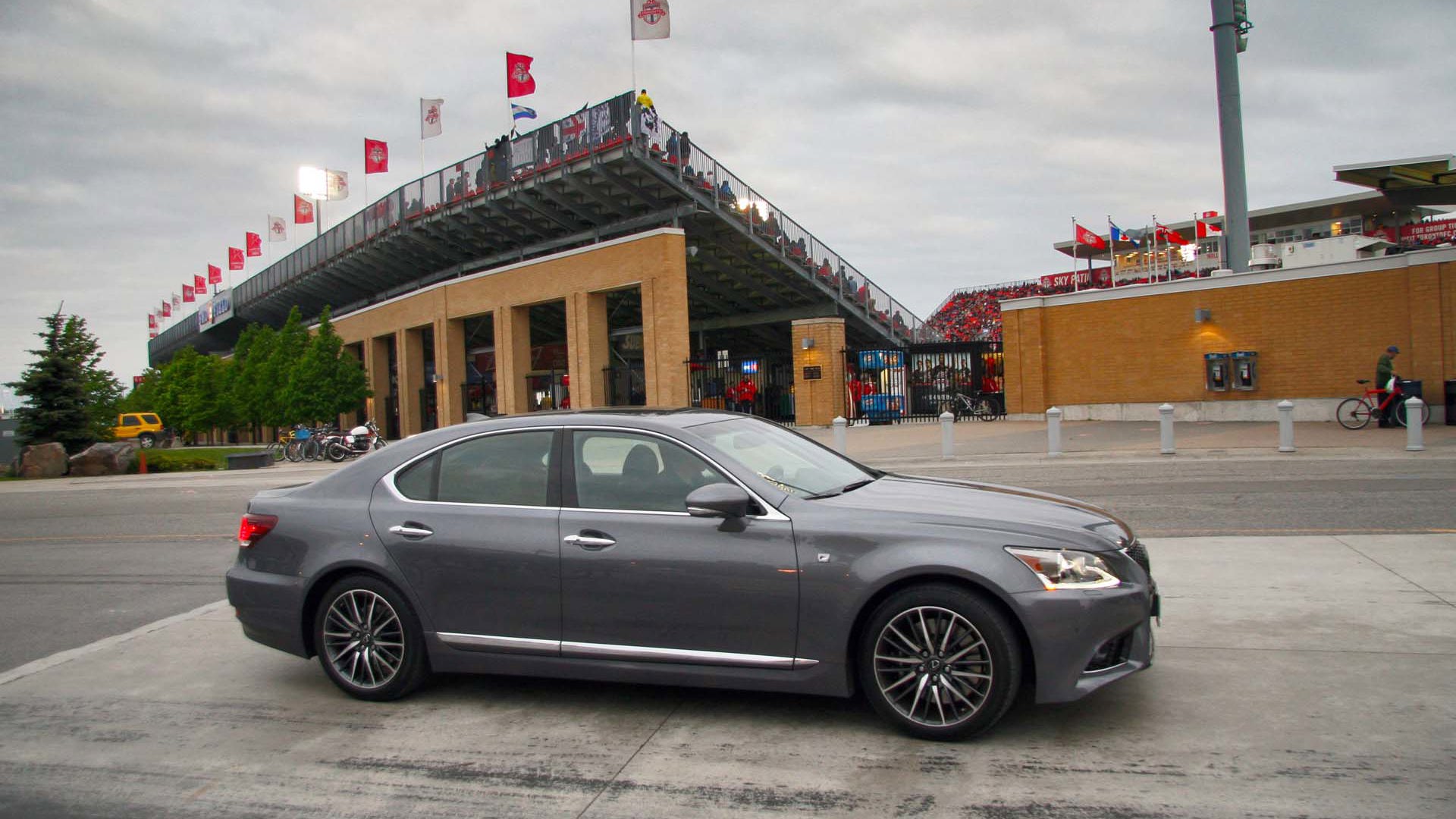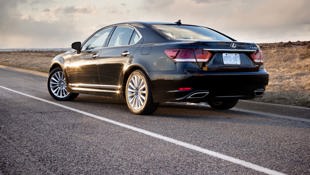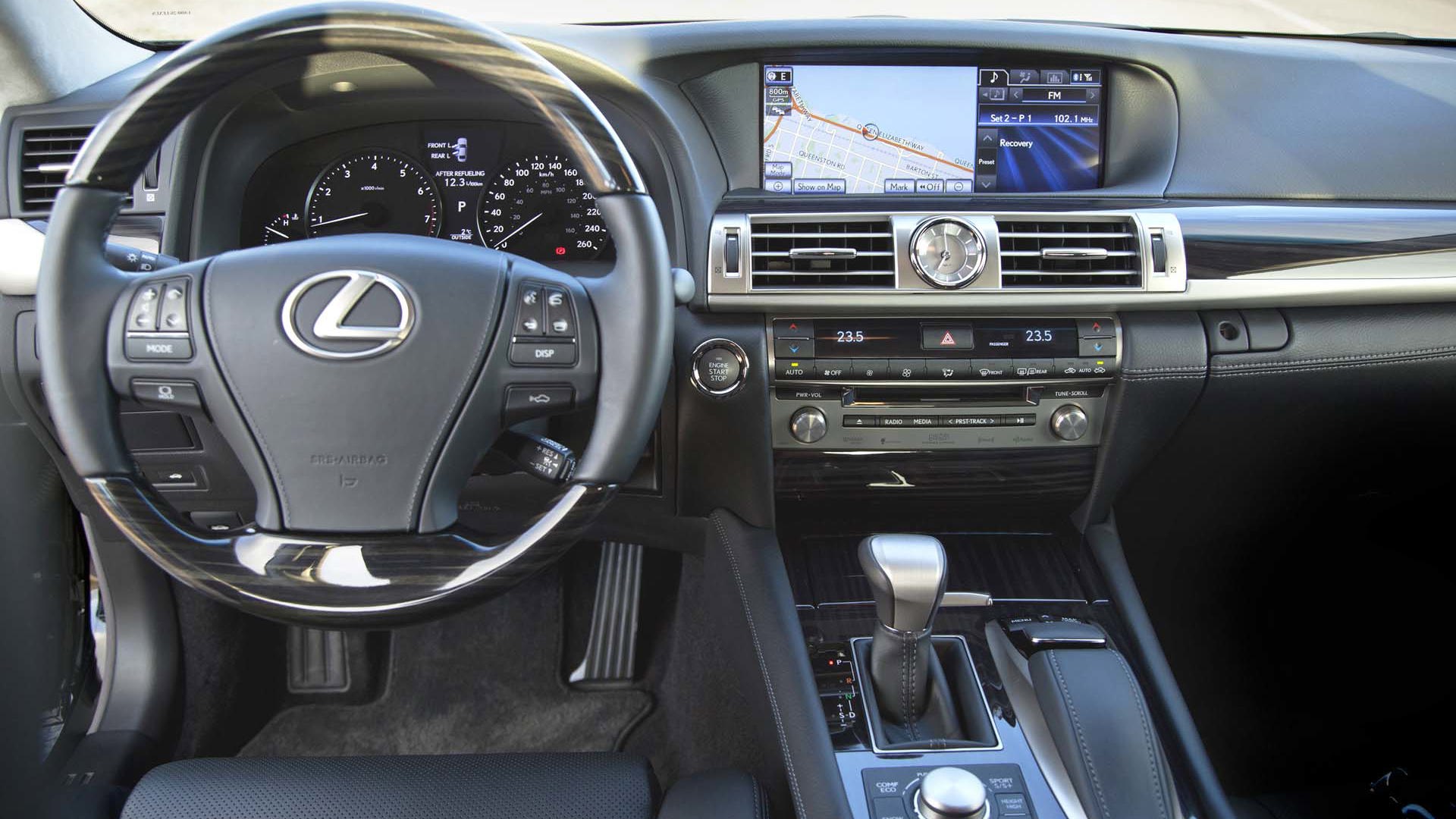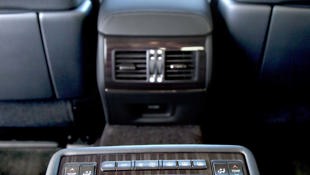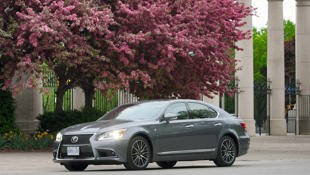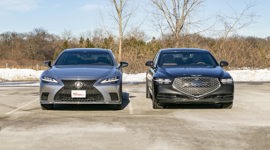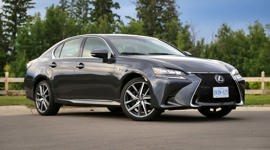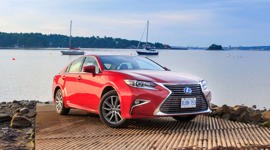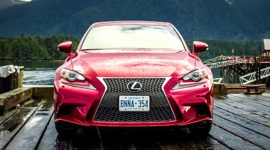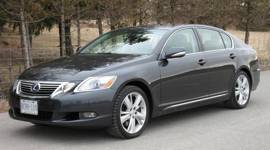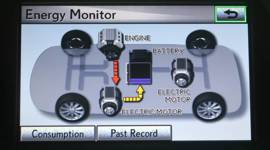Vehicle Type
Large Luxury sedan
This car was engineered meticulously to deliver tranquil, effortless and tremendously quiet and creamy drives on short trips or long.
History/Description
I’ll break from the norm in this review a little and start with a personal note. In the many years and hundreds of reviews I’ve compiled on used cars, I’ve formed a few opinions about buying a used flagship luxury car. The sticky? If you’re willing to put up with fussy electronic systems, high maintenance and repair costs, and a higher-than-average likelihood of frustrating issues that’ll get you Italian-level angry and see you inventing new swear words, you’ll benefit from a beautiful driving experience. But you don’t buy a flagship car for low running costs, cheap maintenance, and trouble-free operation. You buy it to have a flagship car.
Unless, maybe, you’re considering a Lexus LS. A frequent winner of awards celebrating quality, dependability and trouble-free, no-nonsense motoring, this machine looks like a pleasant departure from the ‘module-this, wiring-that, failure of something-or-other’ reports that pop up vigorously when searching for reliability information on other great big flagship cars.
Sure, the LS lacks the stylistic passion you’ll find in a comparable European flagship, though the promise of above-average reliability, partially enabled by the Japanese reputation for knowing how to do wiring and electronics, should compensate.
Perhaps best of all, the current-generation LS came into existence for 2007—meaning that there’s been plenty of time to iron out any bugs. If you’re after a flagship sedan, but low running costs are a priority, this might be the most important used-car buyer’s guide you read.
There’s no shortage of premium features: look for a vivid Mark Levinson audio system (perfect for listening to in the ultra-quiet LS hybrid), navigation, self-parking system, voice-command capabilities, massaging seats with climate controlled leather, hard-drive music storage, night vision, power door cinchers, a rear-seat ottoman, and heaps more.
Engines/Trim
Look for LS 460 models, packing a 4.6L V8, and the LS 600h, packing a 5.0L V8 with hybrid drive, offering more power and performance, and reduced fuel use. All-wheel drive was available on all units, and extended-wheelbase models, with limousine-like rear seating accommodations, had an extra ‘L’ in the name badge. Standard models packed about 380 horsepower, with hybrid models increasing that figure to the better part of 440. Depending on the year, you’ll also find F Sport models, dressed up with added cosmetics and tweaked wheels and suspensions for a sportier drive.
What Owners Like
A check of owner reviews and your writer’s past test-drive notes confirm the unsurprising: this car was engineered meticulously to deliver tranquil, effortless and tremendously quiet and creamy drives on short trips or long. Craftsmanship is flaunted throughout the cabin, every control and switch and lever feels top quality and solid, and though the look is far from exciting, the cabin is lavish throughout, and the styling is stately. Performance from either powerplant is rated highly, as is refinement.
See what's in the cards: Lexus LF-FC hints at the future of the LS
What Owners Dislike
Complaints typically include a numb steering feel, reduced trunk capacity on hybrid models (thanks, batteries!) and reduced outward visibility through the windshield, thanks to the camera and sensor grid mounted up top of it. Headroom is also less than expected, with many owners wishing for some more space between the top of their craniums and the velvety suede above.
Here’s a few owner reviews to check out.
The Test Drive
Get on board, and start with a full check of all on-board electronics. Confirm proper operation of the seat adjustment motors, the heated and chilled seat functions, and the seat memory system. Confirm that the climate control system works on all modes and fan speeds, and confirm proper operation from the stereo system, too, noting any sounds that could indicate a bad speaker. A repetitive clicking or buzzing sound could indicate a bad head unit.
While driving, be on the lookout for excessive bounciness or bounce-and-rebound from the suspension, especially in the rear. Some owners have reported bad or broken struts, often having them replaced under warranty. Bottoming out, or unwelcome clicking or banging noises when encountering a bump in the road, are other warning signs.
Here’s some more discussion about the suspension system in the Lexus LS.
And here’s a thread suggesting that the LS’s available air suspension system should last about 100,000 kilometres before the (pricey) shocks need to be replaced. Warning signs of a bad air shock, or a bad air suspension actuator, may include warning messages, excessively saggy or bouncy ride quality, a gentle thud or bump when hitting a bump, or rattling noises on rough surfaces. In virtually any car with air suspension, components will wear out and require expensive replacement—so avoid a used LS with air suspension if possible.
Be sure to ‘feel’ the brakes, during light, moderate and heavy application. Any unwelcome noises (squealing), or pulsations from the pedal (non-ABS related), or through the whole body of the car, could be signs of trouble. Some owners have reported issues with the ABS brake actuator, which will need to be replaced if it’s worn out.
Some owners have also reported simultaneous illumination of numerous warning lights in the instrument cluster, suggesting issues with the ABS brakes and stability control. Though this may point at a problem with the braking system, the likely culprit seems to be a weak or dying battery that’s failing to provide enough power to vehicle systems. Any warning lights detected should be investigated by a Lexus technician. A full ECU scan is also advised.
A weak battery may also cause issues with engine start up, likely presenting as intermittent delays between pressing the ‘engine start’ button, and the engine achieving ignition. Though this issue could be caused by a weak transponder remote battery or a bad engine start/stop switch too, a check of the battery and charging system is advised ahead of the purchase of any used LS. Here’s yet another car that will benefit from being connected to a trickle charger when it’s not being driven for extended periods.
Other issues include deteriorating moonroof seals, and the possibility of water leaking into the area where the moonroof parks, which could cause rust or other issues. Check the appearance of the moonroof seal, and the area where the moonrooof’s glass pane parks, for trouble signs and rust formation.
A few notes on the LS hybrid model. All used LS hybrid candidates should be checked by a Lexus technician before purchase, confirming that all electronics are operating properly, that all recalls and software updates have been carried out, and that all fluid changes (as applicable, and especially relating to the CVT transmission) are up to date, and have been performed at a Lexus dealer. Use of non-approved fluids can cause problems.
A final note: if the model you’re considering has remaining warranty, be sure to have the local dealer document any problems or issues you may experience as soon as possible – which may help speed up the warranty claim process, should it be required.
The Verdict
In your writer’s usual scouring of online owner forums, LS owners didn’t have a lengthy ‘STICKY’ section of frequently encountered problems posted atop other forum discussions. In all, though the LS has a few common issues to be aware of, this is a model that appears largely free of pervasive and systematic concerns present in comparable models. A used model with a clean bill of health should prove reliable and fuss-free for years to come.
Here’s some additional reading.
A few recalls.
Crash Test Ratings
IIHS: Ratings here
NHTSA: N/A
